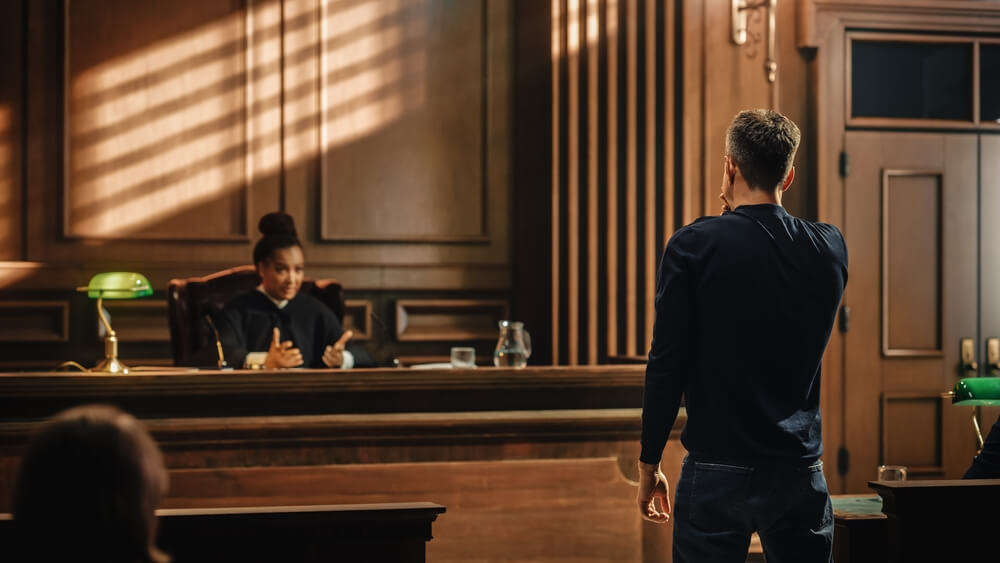Office Location
608 West 12th Street, Suite B Austin, TX 78701
legalassistant@wm-attorneys.com
In most situations, police officers are the ones who file criminal charges against an individual, but in some cases, a private citizen may petition for criminal charges to be filed.
Generally speaking, mere allegations are not sufficient to bring criminal charges against a person. To initiate criminal proceedings, there needs to be probable cause that a crime was committed – and that the accused individual is the person who committed it. Under those circumstances, a criminal court judge could issue an arrest warrant, and a police officer could make an arrest.
If you are currently the subject of an arrest warrant, it is important that you have experienced legal representation in your corner advocating for you during every stage of criminal court proceedings. At the Law Office of David D. White, PLLC, our knowledgeable team of Texas criminal defense attorneys can meet with you to discuss the circumstances of your arrest and determine your eligibility for raising a legal defense at trial. We could also assist you with negotiating a favorable plea deal from the prosecuting attorney and work to secure the best possible result in your case.
For a free case evaluation and legal consultation with a knowledgeable Texas criminal defense lawyer, please reach out to our office today.
Ordinarily, for a police officer to make an arrest, they must have probable cause along with a warrant – or an applicable exception to the warrant requirement must exist. The officer must first have probable cause that the alleged criminal activity in question occurred and that the accused person was the one who committed the criminal act. Probable cause does not have a precise definition, but it is more than a “reasonable suspicion” of criminal activity.
Some common examples of probable cause in a criminal case include:
In some cases, a warrant exception might apply. Some of the most common warrant exceptions include:
In short, a mere reasonable suspicion or “hunch” is not sufficient for charges to be filed – or for a police officer to initiate an arrest.
Once a police officer initiates an arrest and takes a person into custody, the arrestee has several legal rights. First, they have a right to the presence of legal counsel during any custodial interrogation or questioning. This right exists because the Fifth Amendment to the United States Constitution protects criminal defendants against self-incrimination.
If the arrestee asserts their legal right to the presence of counsel but a questioning police officer ignores that request and continues to question the arrestee, then any incriminating statements the arrestee makes may be subject to suppression at a trial.
In any criminal case, the state prosecutor has the sole legal burden of proof. The accused individual – or the defendant – does not have to prove anything or even testify on the witness stand in court.
For the prosecuting attorney to obtain a guilty finding or conviction, they must prove each element of the underlying criminal charge beyond a reasonable doubt. If they fail to satisfy this high legal burden, the charge (as well as the entire criminal matter) may be subject to dismissal.
If you are currently the subject of an arrest warrant or pending criminal charges, it is important that you have a skilled attorney representing you and advocating for your legal interests at every stage of your case. At the Law Office of David D. White, PLLC, we can represent you throughout your criminal case – including at all legal proceedings – and fight for all of your legal rights and interests.
For a free case evaluation and legal consultation with a knowledgeable Texas criminal defense attorney, please call us at 512-369-3737 or contact us online.
If you are arrested for trespassing, consult an Austin criminal defense attorney immediately. In the State of Texas, certain property owners and/or their representatives can issue what are called Criminal Trespass...
When facing criminal charges, the legal process can seem daunting and overwhelming. Hearing the various legal terms and procedural rules can make the situation even more confusing. One common term that often arise...
Being released on your own recognizance (OR) in Texas means being released from jail without having to post bail, with a written promise to appear in court for all upcoming proceedings. That’s why you shoul...
608 West 12th Street, Suite B Austin, TX 78701
legalassistant@wm-attorneys.com